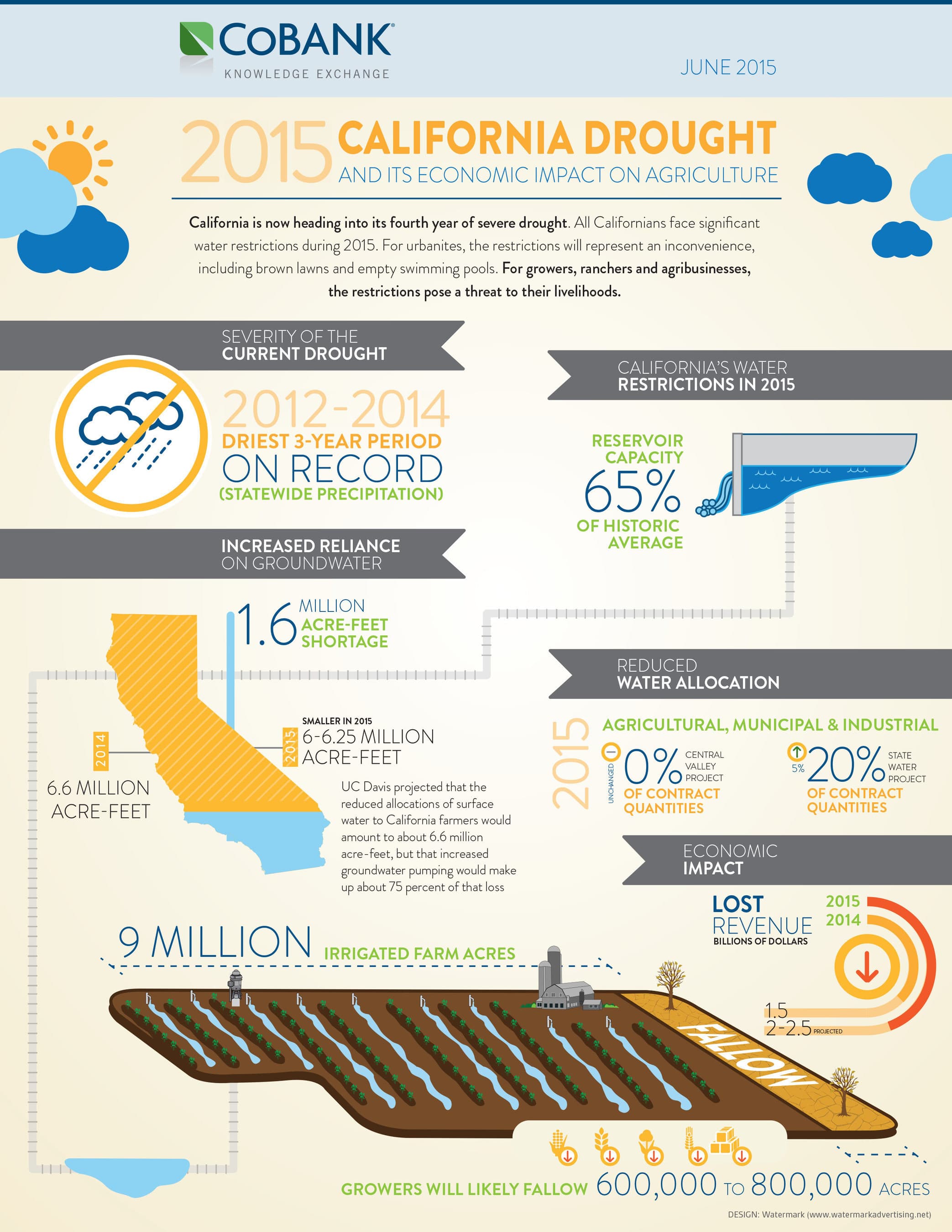Report released by CoBank
By Diego Flammini, Farms.com
As almost the entire state of California is experiencing drought, measures to conserve water are in place and with an uncertainty about the 2015 crop season, it’s hard to put a number on the financial impact the drought could have.
Until now.
CoBank, part of the United States Farm Credit System, through its Knowledge Exchange Division, released a report documenting the possible economic impacts of California’s drought for 2015 and 2016.
The report, entitled “California Drought in 2015 and its Economic Impact on Agriculture” looks at the impact the drought will have on California’s major growing regions, the impact on some commodities specifically and other agricultural challenges the drought proposes.

Dan Kowalski, an economist for CoBank, said that even though the drought, in its fourth year is wreaking havoc on the agriculture industry in California, many farmers and producers could come out of it without severe financial damage.
"Despite the continuing difficulties and challenges, California's agricultural industry will continue to adapt to reduced water allocations for as long as necessary, and will find better ways to produce the crops and products that consumers demand," said Kowalski.
Some of the report’s findings include:
- Not all commodities will be impacted at the same rate. Those with higher yields will be affected least by the drought because farmers will direct the water to the crops that need them most. California’s highest yielding crops include nuts and citrus.
- Farmers with corn, wheat, cotton, rice, hay and beans could see the most revenue loss
- The 2015 drought damage will be worse than last year, but not considered catastrophic.
Tell us your thoughts about the report’s findings on the California drought. What measures are you taking on your farm during this difficult time?